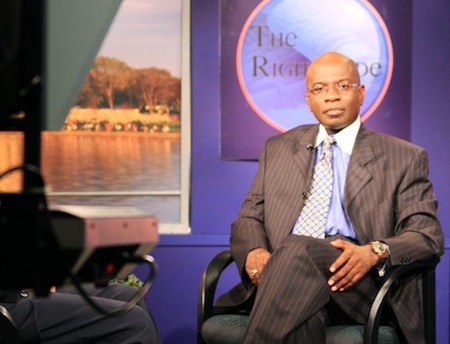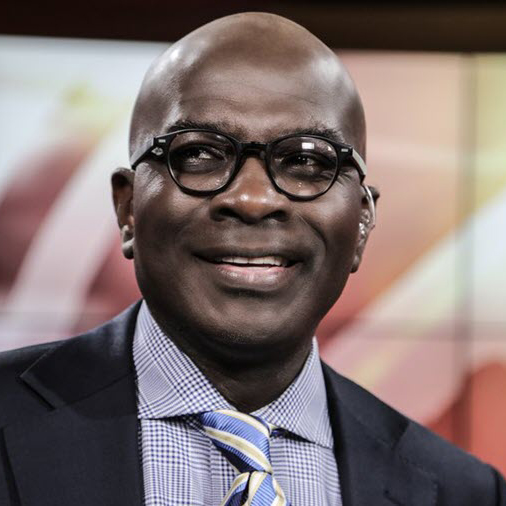Guest Blog: FCC Doublespeak: Saying One Thing and Doing Another While Turning Its Back on Enhancing Diversity and African-American Broadcast Ownership

The smarter way to stay on top of broadcasting and cable industry. Sign up below
You are now subscribed
Your newsletter sign-up was successful
The Telecommunications Act of 1996 specifies that the Federal Communications Commission (FCC) "shall" review its broadcast ownership rules every four years, "determine if” those rules are necessary in the public interest as the result of competition, and "repeal or modify” any regulation determined to no longer be in the public interest. Despite these statutory obligations, in April the FCC failed to complete its required 2010 quadrennial review, which actually began in 2009, failed to determine if its existing broadcast ownership regulations serve the public interest, or to "repeal or modify" any of those regulations. Instead, the FCC merged its prior quadrennial review into a new 2014 quadrennial review, avoiding its legal obligations.
This is one of the reasons why my company, Howard Stirk Holdings, LLC (HSH), has sued the FCC. As an African American licensee of two television stations, I believe that by refusing to complete its 2010 quadrennial review, the FCC has unlawfully withheld taking an action required by Congress and the law, and thus is arbitrarily and capriciously retaining burdensome regulations that are no longer in the public interest. Further, the FCC not only failed, after studying the matter for five years, to make any final determination about the need for its existing broadcast ownership rules, it also adopted a new rule restricting joint sales agreements (JSAs) between television broadcasters in the same market. Contrary to its decade-long policy and practice, the FCC determined that JSAs for more than 15% of a television station's weekly advertising time will now be attributable for purposes of the FCC's broadcast ownership rules.
This not only changes the rules in the middle of the game and without conclusion of the 2010 quadrennial review, but it effectively slams the door shut on an important gateway to enhancing localism, viewpoint diversity, and opportunities in broadcast television ownership by minorities and underrepresented groups. JSAs were shaped by the FCC and its staff to comply with the broadcast ownership rules, and have been a ubiquitous facet of the marketplace, as they are used by scores of stations in numerous markets. Just in January, the FCC approved Gannett Co.’s $1.5 billion acquisition of Belo Corp., and Tribune Company's $2.73 billion purchase of Local TV Holdings LLC. Both relied heavily on JSAs and other sharing agreements. At the same time, the direct competitors of local television–cable, satellite, and telecom companies–use their own JSA-like agreements, called “interconnects,” to sell local advertising with no percentage limit.
The FCC's only justification for this further limitation of broadcasters' rights is its unsubstantiated assertion that certain television JSAs "convey the incentive and potential” for the broker to influence program selection and station operations. In stark contrast, the FCC expressly declined to adopt any regulation for all other shared service agreements, of which JSAs are only a subset, on the ground that it lacked sufficient information to "formulate sound public policy." In addition, despite a conspicuous lack of evidence of harm associated with television JSAs, the FCC arbitrarily and capriciously declined to grandfather existing television JSAs for more than 15% of the brokered station's advertising time. Instead, all such JSAs must be unwound over the next two years even though the 2014 quadrennial review will still be ongoing and before the FCC can be expected to make a determination that its existing ownership rules do, in fact, serve the public interest.
Without the help of the JSAs my company has entered into with Sinclair Television Group, I would not have been able to fulfill my lifelong dream of being a TV station owner. These agreements allowed me to obtain access to capital that would have otherwise been unavailable to me. Access to capital and financing are without question the single biggest obstacles to new entrant and minority broadcast ownership. Single buyers of a TV station, especially in small and medium size markets where HSH operates, simply cannot get financing without JSAs and similar types of shared services agreements. In my experience, JSAs and shared services arrangements provided the only means over that obstacle, and are thus a critical avenue for addressing the FCC’s goals of serving the public interest in fostering competition, diversity, local programming, and minority ownership. So, you can imagine how hollow it sounds to me when the FCC says its action banning JSAs is designed to “enhance broadcast diversity and minority ownership.”
When the FCC also invited parties to seek waivers of its JSA ban, promising a prompt review and stating it had “an obligation to take a hard look at whether enforcement of a rule in a particular case serves the rule’s purpose or instead frustrates the public interest,” I immediately asked for such a waiver. I wanted to acquire three more stations as part of a larger transaction between Allbritton Communications and Sinclair, which incidentally would have doubled from three to six the total number of full power TV stations in the country owned by African Americans. But time was of the essence because there was an overall expiration date between the parties.
Unfortunately for me, and contrary to its statement that it would act expeditiously with regards to waiver of its rules, the FCC essentially let the clock run out on my request and took no action. Perhaps Juan Williams hit the nail on the head about the FCC’s doublespeak and arbitrary actions in a Mach 10, 2014 Wall Street Journal commentary when he wrote, “liberals at the FCC who claim to be interested in promoting diverse broadcast ownership lose interest if the owner is a conservative like Armstrong Williams.”
The smarter way to stay on top of broadcasting and cable industry. Sign up below
Now the court will decide.
Note: The FCC did not respond, at presstime, to an invitation to comment.
Armstrong Williams is a TV and radio host and station group owner. His Howard Stirk Holdings owns WWMB Myrtle Beach and WEYI Flint.
Armstrong Williams is a principal owner of the Baltimore Sun and manager/sole owner of Howard Stirk Holdings I & II Broadcast Television Stations.

